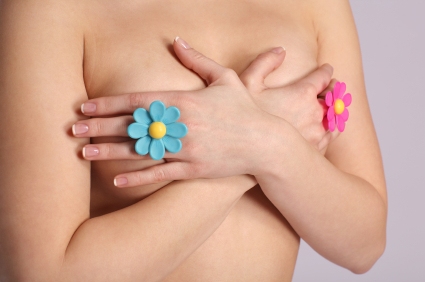Breast Exam Scam
The breast exam scam is commonly associated with men, usually posing as health professionals, and offering free breast exams in order to detect breast abnormalities.
Breast cancer is second after lung cancer as the leading cause of cancer death in women.
At some time in a woman's life, the chance of developing invasive breast cancer is about 1 in 8.
Early detection is important and part of this detection process is a breast exam. The scammers take advantage of this and exploit women's concerns around the need to have a regular breast exam.
Research has shown that self exams help find breast cancer. Self examination teaches women how their breasts feel normally and to notice changes.
However a large number of women do not know how to carry
out a self examination.
The Breast Exam Scam
The most widely reported case involved a man from Florida USA. 76-year-old William Winikoff of Coconut Creek posed as a doctor and offered women free breast exams.
He carried a black doctor's bag and approached apartment buildings and advised women he was a doctor and offered free breast exams. A 36 year old woman told police she let Winikoff touched her breasts, and then her genitals.
The woman realized he was not a real doctor and rang 911 however he had fled by the time the police arrived.
However police caught him after he examined a 33 year-old woman in the same apartment building.
In a variation of the breast exam scam, a Toronto hospital employee told women in the obstetrics ward he was a 'lactation consultant' and then examined their breasts. He was found out when one of the women he examined asked the hospital staff to see him again, and was told they only had female technicians!
Breast Cancer

Early detection of breast cancer is important. There is a 97% five-year survival rate when breast cancer is detected early since this can help prevent it from spreading. Ways of diagnosing breast cancer include:
A mammogram is a specialized x-ray of the breast to help
detect cancers which cannot be detected by feel. Some women are confused as
to how often they should get a mammogram. Here is what the professionals say
about mammograms.
At age 40 begin getting annual mammograms by a licensed technician. A
mammogram will take about twenty minutes. Make sure to contact the center if
they do not inform you of the results within thirty days. It is very
important that results are compared from one year to the next.
Clinical Breast Exam. This is an exam by a health care
professional. Women in their 20s and 30s should have a clinical breast exam
at least every three years and women 40 or older should have an exam each
year.
Self-Examination. Starting at age 20 women should begin
doing a self-exam. Ask your doctor if you are not exactly sure how to do
this or if you are not sure you are doing it correctly. If you want further
information on how to carry out a self exam, use this link to avoid
breast exam scams.
- Home ›
- Medical Scams ›
- Breast Exam Scam